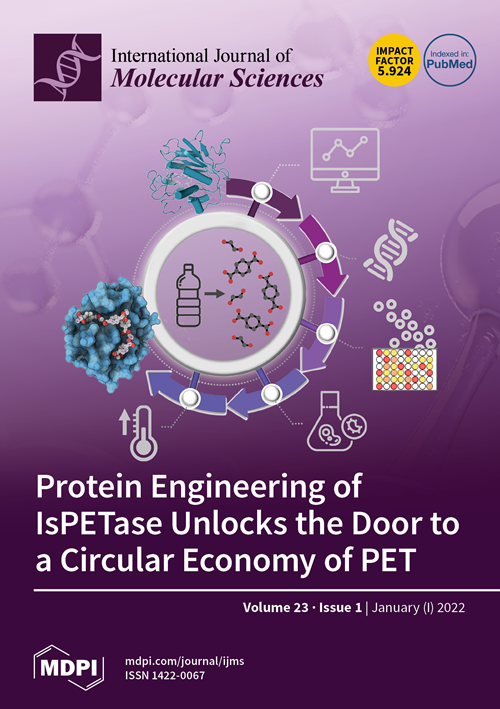The Molecular Basis of Male Infertility in Obesity: A Literature Review
IF 4.9
2区 生物学
Q1 BIOCHEMISTRY & MOLECULAR BIOLOGY
引用次数: 0
Abstract
The rising incidence of obesity has coincided with rising levels of poor reproductive outcomes. The molecular basis for the association of infertility in obese males is now being explained through various mechanisms. Insulin resistance, hyperglycemia, and changes in serum and gonadal concentrations of adipokines, like leptin, adiponectin, resistin, and ghrelin have been implicated as causes of male infertility in obese males. The effects of obesity and hypogonadism form a vicious cycle whereby dysregulation of the hypothalamic–pituitary–testicular axis—due to the effect of the release of multiple mediators, thus decreasing GnRH release from the hypothalamus—causes decreases in LH and FSH levels. This leads to lower levels of testosterone, which further increases adiposity because of increased lipogenesis. Cytokines such as TNF-α and interleukins, sirtuins, and other inflammatory mediators like reactive oxygen species are known to affect fertility in obese male adults. There is evidence that parental obesity can be transferred through subsequent generations to offspring through epigenetic marks. Thus, negative expressions like obesity and infertility have been linked to epigenetic marks being altered in previous generations. The interesting aspect is that these epigenetic expressions can be reverted by removing the triggering factors. These positive modifications are also transmitted to subsequent generations.肥胖症男性不育的分子基础:文献综述
肥胖症发病率上升的同时,不良生殖结果也在上升。肥胖男性不育的分子基础目前正通过各种机制得到解释。胰岛素抵抗、高血糖以及血清和性腺中脂肪因子(如瘦素、脂肪连通素、抵抗素和胃泌素)浓度的变化被认为是肥胖男性不育的原因。肥胖和性腺机能减退的影响形成了一个恶性循环,下丘脑-垂体-睾丸轴因多种介质释放的影响而失调,从而减少了下丘脑释放的 GnRH,导致 LH 和 FSH 水平下降。这导致睾酮水平降低,而睾酮又会因脂肪生成增加而进一步增加脂肪含量。众所周知,细胞因子(如 TNF-α 和白细胞介素)、sirtuins 以及其他炎症介质(如活性氧)会影响肥胖男性的生育能力。有证据表明,父母的肥胖会通过表观遗传标记传给后代。因此,肥胖和不育等负面表现与上一代人的表观遗传标记被改变有关。有趣的是,这些表观遗传表达可以通过消除诱发因素来恢复。这些积极的改变也会传给后代。
本文章由计算机程序翻译,如有差异,请以英文原文为准。
求助全文
约1分钟内获得全文
求助全文
来源期刊

International Journal of Molecular Sciences
Chemistry-Organic Chemistry
CiteScore
8.10
自引率
10.70%
发文量
13472
审稿时长
17.49 days
期刊介绍:
The International Journal of Molecular Sciences (ISSN 1422-0067) provides an advanced forum for chemistry, molecular physics (chemical physics and physical chemistry) and molecular biology. It publishes research articles, reviews, communications and short notes. Our aim is to encourage scientists to publish their theoretical and experimental results in as much detail as possible. Therefore, there is no restriction on the length of the papers or the number of electronics supplementary files. For articles with computational results, the full experimental details must be provided so that the results can be reproduced. Electronic files regarding the full details of the calculation and experimental procedure, if unable to be published in a normal way, can be deposited as supplementary material (including animated pictures, videos, interactive Excel sheets, software executables and others).
 求助内容:
求助内容: 应助结果提醒方式:
应助结果提醒方式:


